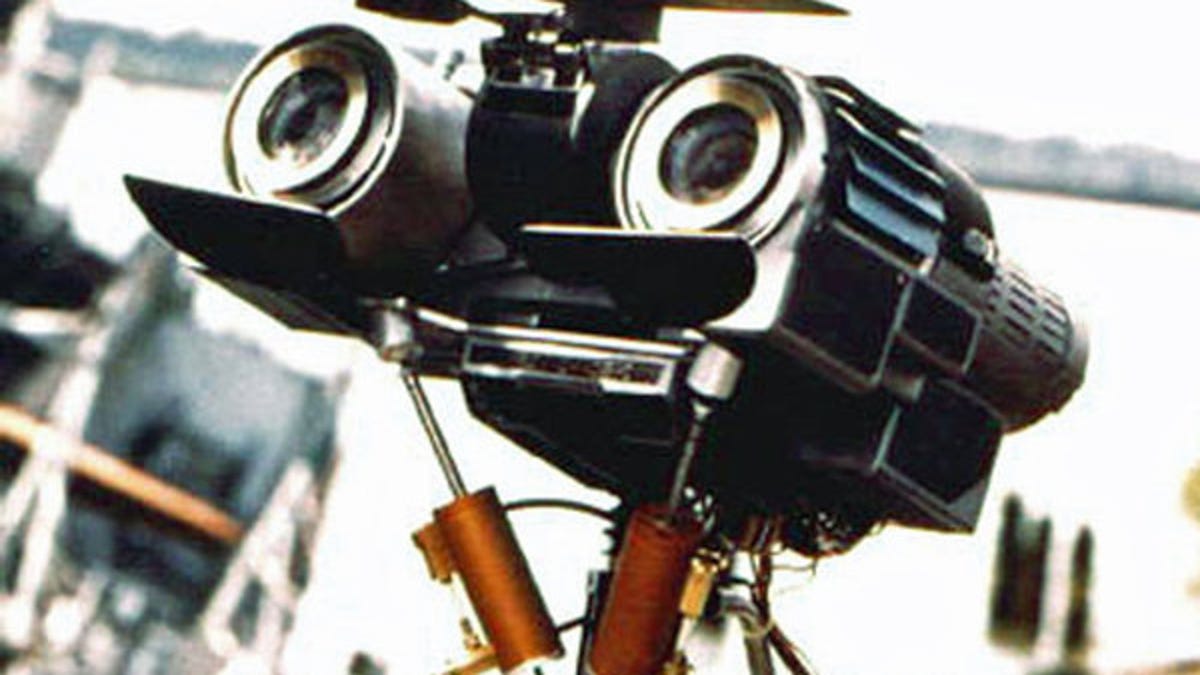Do soldiers care too much about battlefield robots?
A researcher has found that soldiers develop strong emotional attachments to the robots deployed in place of humans — and that it may affect their battlefield performance.

Military robot Number 5 from 1986's Short Circuit.
(Credit: TriStar Pictures)
A researcher has found that soldiers develop strong emotional attachments to the robots deployed in place of humans — and that it may affect their battlefield performance.
Deploying robots in dangerous or combat situations can save the lives of human soldiers. They can be used for reconnaissance, scouting, search and rescue, detection, even bomb disposal, with the idea being that losing a robot is a more acceptable outcome than losing a human soldier.
But some soldiers, researcher Julie Carpenter has discovered, develop strong emotional bonds with their mechanised helpers, to the point of experiencing frustration, anger and grief when the robots are destroyed on the battlefield — even holding funerals.
Carpenter interviewed 23 explosive ordnance personnel from around the US and from every branch of the military, trained to defuse chemical, biological, radiological, roadside and nuclear weapons. What she found was that often the soldiers view the robots as an extension of themselves or their team members, sometimes even able to distinguish who was piloting a robot based on its movements. In many cases, the soldiers would anthropomorphise the machines and start to view them as sort of pets.
Some would even name their robots.
"They were very clear it was a tool, but at the same time, patterns in their responses indicated they sometimes interacted with the robots in ways similar to a human or pet," Carpenter said. "They would say they were angry when a robot became disabled because it is an important tool, but then they would add 'poor little guy', or they'd say they had a funeral for it."
Looking at some of the robots DARPA has created and is in the process of creating for military purposes, some might find this attitude difficult to understand — but anyone who's had, say, a wind-up toy or a Tamagotchi will find it easier — as would the Japanese.
In Japan, the cultural perception of robots is a lot more relaxed and accepting, possibly thanks to the Shinto concept of Animism. Animism is the idea that everything in the world, animate or inanimate, is in possession of a spirit.
Although some might scoff at such a notion, nevertheless, even domestic-robotic helpers can find a place in the hearts of their owners. In 2007, researchers at the Georgia Institute of Technology found that humans develop emotional attachments to, of all things, Roomba robotic vacuum cleaners.
Carpenter isn't even the first to study soldiers' attachment to robots. In 2009, defence analyst Peter Singer examined the relationship between soldiers and their robots and found that soldiers could fall apart if their robot allies were harmed.
Carpenter's research hasn't reached that point yet. But the researcher speculates that, if military robots become even more human or animal-like, this could have a detrimental effect on soldiers' abilities to make rational decisions.
"You don't want someone to hesitate using one of these robots if they have feelings toward the robot that goes beyond a tool," she said. "If you feel emotionally attached to something, it will affect your decision making."
Via phys.org

